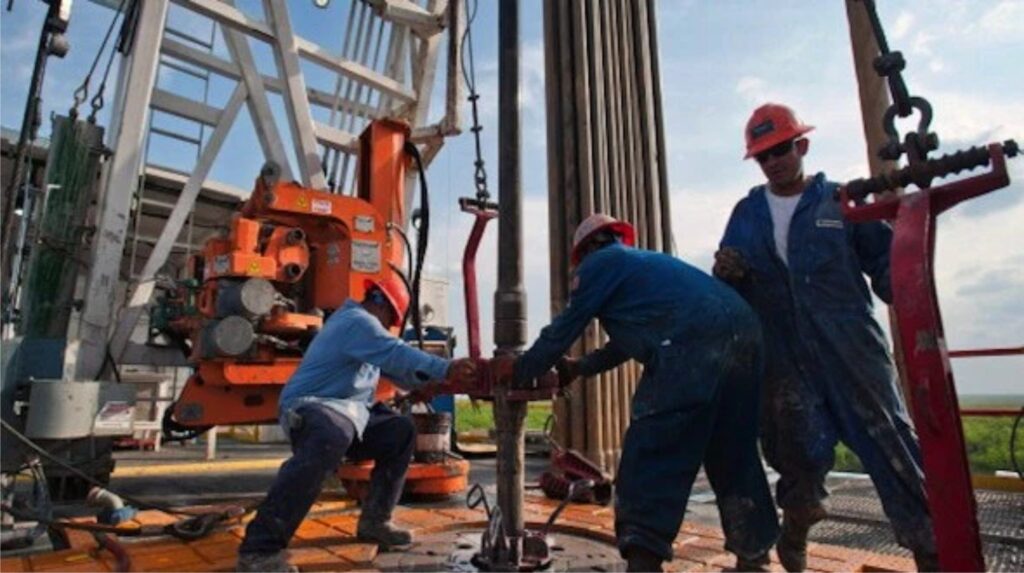Nigeria’s cost of producing crude oil has risen to about $40 per barrel, a report by the Nigerian Upstream Petroleum Regulatory Commission has said.
This is 300 per cent higher than the cost of producing the same crude in Saudi Arabia, which is $10 per barrel.
According to the NUPRC, rising production costs, coupled with volatile global oil prices, have made it increasingly difficult for Nigeria to remain competitive on the global stage.
“At an average of $25 and $40 production costs per barrel, the nation’s upstream oil production costs are among the highest in the world.
“This range is significantly higher than production costs in top oil-producing countries like Saudi Arabia, where efficient operations allow for costs as low as $10 per barrel,” the NUPRC said in a publication.
The commission worried that this discrepancy affects Nigeria’s ability to attract good investment and compete on a global scale, as high production costs can limit profitability for investors, particularly when global oil prices are low.
Our correspondent reports that if crude sells for an average of $75 per barrel, it means a producer might have spent more than half of the price on production.
The regulator noted that the country is not unaware of where the challenges lie.
“For a long time, it has identified many factors contributing to the high production costs. Many facilities, pipelines, and storage systems are outdated, leading to frequent maintenance needs and operational inefficiencies. Modernising infrastructure to cut down on repair costs, extend asset life and bolster productivity is therefore crucial.
“Oil theft and pipeline vandalism are another setback that impacts operational cost in the sector. Nigeria understands it must develop urgent solutions to curb these menaces and continue to show its determination to address them. The enactment of the Petroleum Industry Act in 2021 marked a pivotal point in this regard,” the commission said.
The NUPRC disclosed that efforts are being made to reduce the production cost to $20.
“Since its emergence as the regulatory powerhouse in the upstream sector, the NUPRC has wasted no time in embracing the task of tackling existing challenges. In 2023, barely two years after its institution, it drew up a 10-year roadmap as a comprehensive strategy to revitalise and return the oil sector to its glory days.
“In 2024, in a shorter-term focus initiative under the broader decade-long Strategic Plan, the NUPRC effectively rolled out its Regulatory Action Plan with one of its key objectives being to lower the production cost per barrel of oil to at least $20,” the publication disclosed.
It maintained that an oil industry lacking production cost efficiency as a core strategy will undoubtedly struggle to open up avenues for investments, retain higher profit margins, improve resilience to market fluctuations, and attain broader economic growth.
With oil accounting for around 90 per cent of Nigeria’s export revenue and a large portion of government income, it was stated that a high cost of oil production poses risks to the country’s economic stability and growth.
The regulator posited that the stakes for Nigeria to achieve the objective are high and although it is not an easy task, the short and long-term benefits of a reduction in production cost cannot be overstated.
“Firstly, lowering production costs will make Nigeria’s oil sector a more appealing destination for foreign and domestic capital. This can inspire the country to compete more effectively with other oil-producing nations and retain a share of the global market. Similarly, by controlling oil production costs, oil companies can secure higher profit margins, even during periods of lower global oil prices.
“An increased profitability would ultimately benefit both operators and the sector, potentially leading to higher tax revenues and royalty payments. A combination of these factors can significantly boost Nigeria’s foreign exchange reserves and strengthen its resilience in the global oil market,” the report said.















